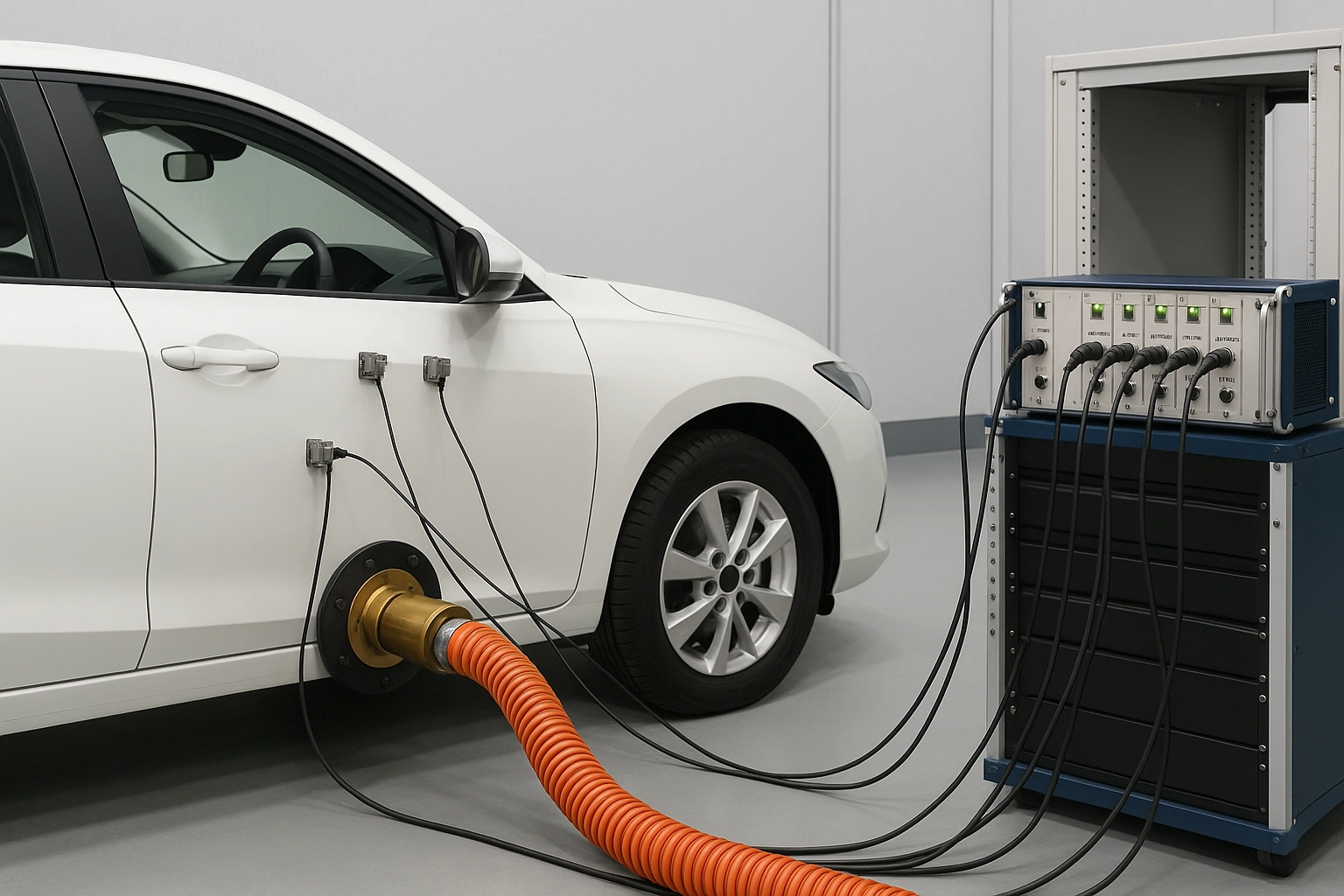MIL STD 1275 Electrical Power System NVH Testing
The MIL STD 1275 specification is designed to ensure that electrical power systems in military vehicles and equipment are robust, reliable, and capable of withstanding the harsh environmental conditions encountered during deployment. This standard focuses on ensuring that the power supply remains stable under various operating conditions, thereby preventing disruptions due to noise, vibration, and harshness (NVH).
Within this context, NVH testing evaluates how well the electrical power system can handle vibrations and noise caused by mechanical components or operational stresses. The goal is to identify potential issues that could lead to failures in mission-critical applications. By adhering to MIL STD 1275 standards during development stages, manufacturers can significantly reduce the risk of field failures, thereby enhancing overall reliability.
The testing process involves simulating real-world environments where components are subjected to various levels of stress and noise. This includes exposure to high-frequency vibrations, temperature extremes, humidity, and other environmental factors that mimic battlefield conditions. The objective is to ensure that the electrical power system remains operational even under these challenging circumstances.
Testing typically begins with a thorough inspection and preparation of the component or system being tested. Engineers must verify all connections and ensure that the unit operates within specified parameters before proceeding. Once prepared, the system undergoes rigorous testing using specialized equipment designed to mimic deployment scenarios. These tests assess how well the power supply handles noise generated by fans, transformers, relays, and other components.
After completing the test phase, engineers analyze data collected from sensors monitoring various aspects of performance. Parameters such as current draw, voltage fluctuations, temperature rise, and waveform integrity are closely examined to identify any discrepancies or anomalies that may indicate potential problems. Any deviations from expected results are documented for further investigation and corrective action.
The final step involves reporting findings based on compliance with MIL STD 1275 requirements. Compliance documentation serves as evidence of adherence to industry standards, providing assurance to stakeholders about the quality and reliability of the product. This report may also include recommendations for improvements or modifications aimed at enhancing overall performance.
Why It Matters
In military applications, where uptime is critical and lives depend on equipment functioning correctly, even minor disruptions can have severe consequences. Ensuring that electrical power systems meet MIL STD 1275 standards helps mitigate risks associated with system failures due to noise or vibration issues. By conducting comprehensive NVH testing early in the development process, manufacturers can catch potential problems before they become costly field defects.
Compliance with these stringent requirements also enhances reputation among customers who value reliability and quality above all else. Demonstrating adherence to recognized standards such as MIL STD 1275 can differentiate a company from competitors offering less rigorous testing protocols. Moreover, it fosters trust between suppliers and end-users by providing reassurance that products have been thoroughly evaluated.
From an operational perspective, meeting these standards ensures smoother integration of new equipment into existing fleets or networks. When all components work harmoniously together without interference caused by noise or vibration issues, overall system performance improves significantly. This leads to increased efficiency and reduced maintenance costs over time.
Why Choose This Test
- Comprehensive Evaluation: MIL STD 1275 testing provides a thorough assessment of electrical power systems under simulated deployment conditions, ensuring they can withstand real-world challenges effectively.
- Rigorous Standards: Adherence to this standard guarantees that the product meets stringent requirements set forth by military specifications, enhancing reliability and performance.
- Cost-Effective: Early identification of potential issues through testing reduces the likelihood of costly repairs or replacements in the field.
- Precision Measurement: Advanced instrumentation used during MIL STD 1275 testing offers precise measurement capabilities, allowing for accurate assessment of system behavior.
- Industry Recognition: Compliance with these standards is widely respected within the defense industry, boosting credibility and reputation among peers.
- Field Proven: Products that pass MIL STD 1275 testing have been proven to perform reliably in challenging environments, increasing confidence in their use.





